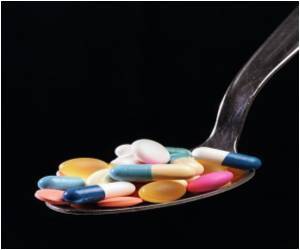The prophylactic use of acid-suppressive medications to help prevent gastrointestinal bleeding (GI) in hospitalized patients has increased significantly over the last decades.

Now, a study led by researchers at Beth Israel Deaconess Medical Center (BIDMC) and reported in today''s on-line issue of The Archives of Internal Medicine finds that, outside of the intensive care unit (ICU), GI bleeding is rare, regardless of whether or not patients receive medication. And, say the authors, given that acid suppressive drugs have been associated with such complications as pneumonia and Clostridium difficile infections, these new findings suggest that, for the average hospital inpatient, the risks of acid suppressive agents may outweigh the benefits.
"The routine practice of prescribing these medications originated in the intensive care unit," says lead author Shoshana Herzig, MD, MPH, a physician in the Division of General Medicine and Primary Care at BIDMC and Instructor in Medicine at Harvard Medical School. "Because ICU patients are prone to stress ulceration [the erosion of gastric lining to the point of ulceration and sometimes bleeding] doctors began using acid suppressive drugs, such as proton pump inhibitor and histamine-2 receptor antagonists, as a prophylactic measure."
This regimen has proven highly effective in preventing ICU patients from developing gastric bleeding. But, as Herzig explains, over time, the routine also came into widespread use outside of the ICU, such that a majority of medical inpatients were also prescribed acid suppressive drugs during their hospital stay.
"In addition to the financial cost incurred by this practice, several recent studies have deomonstrated increased risk of infection associated with the use of acid-suppressive medication in hospitalized patients," the authors write in their paper. They, therefore, decided to determine the actual incidence of GI bleeding in non-ICU patients.
In their study, the authors examined a large cohort of 79,287 patients admitted to BIDMC between January 2004 and December 2007. Using a research method known as propensity score matching, they were able to control for such factors as age, gender, concurrent medication use and comorbid medical conditions. They found that GI bleeding in non-ICU patients occurred in only .29 percent of admissions.
Advertisement
"We know from other studies that the initiation of acid-suppressive medications also carries with it the risks of inappropriate continuation at the time of hospital discharge and the risks of drug-drug interactions," she adds. "Our findings lend further support to existing guidelines that suggest that acid-suppressive medications should not be used to prevent nosocomial bleeding in hospital patients outside the ICU. We hope that this research will help to further curb the inappropriate use of this class of medications."
Advertisement
This research was supported by grants from the Department of Health and Human Services, the National Institute on Aging and the National Center for Research Resources.
Beth Israel Deaconess Medical Center is a patient care, teaching and research affiliate of Harvard Medical School and consistently ranks in the top four in National Institutes of Health funding among independent hospitals nationwide. BIDMC is a clinical partner of the Joslin Diabetes Center and a research partner of the Dana-Farber/Harvard Cancer Center. BIDMC is the official hospital of the Boston Red Sox. For more information, visit www.bidmc.org.
Source-Newswise









